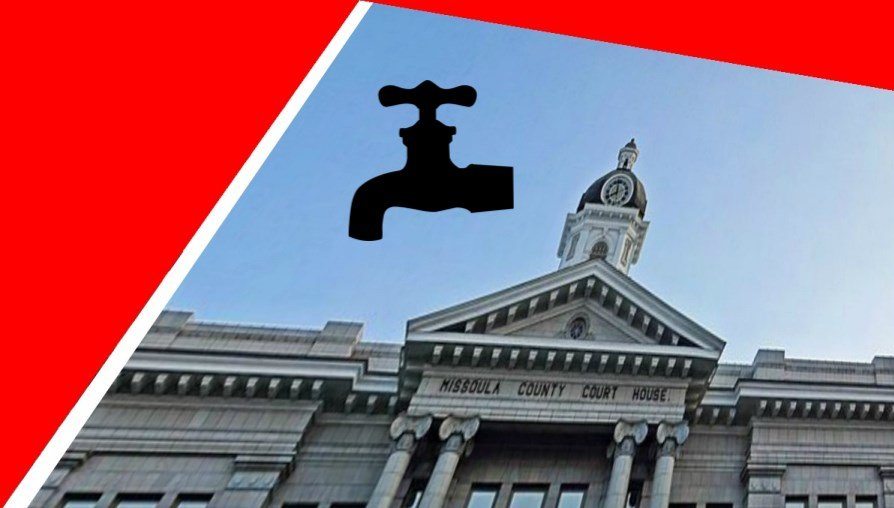Labor & Economy
Why Publicly Owned Water Matters

The town of Coatesville, Pennsylvania, outside of Philadelphia, is a former steel mill town full of struggling residents. With a per capita income of $14,079, Coatesville is situated in wealthy Chester County, but it has struggled amid a declining population and lack of job opportunities. Missoula, Montana, on the other hand, was once a thriving lumber town. Its per capita income of $17,166 means it’s slightly wealthier than Coatesville, and the University of Montana and two hospitals are major employers for the city.
Two thousand, three hundred miles separate Coatesville from Missoula, but the two towns have more in common than you might think. One important similarity? Their ongoing struggles with private, for-profit water companies, like too many cities around the U.S.
Coatesville officials sold the public water utility in 2001, hoping to use the one-time cash infusion to spark an urban renaissance while the privately-run PAWC promised to invest in desperately needed modernization and maintenance. Sadly, neither happened. The funds have been used over the years for emergency spending by the city, while the modernization plan assumed a population spike that never materialized, leading to a system so large the town can barely afford it.
Now, Coatesville residents are facing water bills one might expect in larger, wealthier metropolises like San Francisco, and the rates customers are paying for water and sewage doubled in just five years. Many people on limited incomes say they are paying $100 a month or more to ensure they have access to clean water in their homes. Officials who voted for the sale said they never expected such steep hikes and PAWC continues to blame past failed leadership for deferring maintenance over the last 50 years. As is all too common in these bad deals, it’s now the poorest residents who must pay the price.
A few thousand miles and time zones away, the town of Missoula just scored an important victory on behalf of its residents and against a private utility owned by the global assessment management firm, the Carlyle Group. When Carlyle tried to sell the utility to a Canadian-owned firm, Missoula countered that it should have the right to purchase their water system back before it was sold to a foreign entity. Missoula took the case to court and won.
In her remarkable decision, Judge Karen Townsend sided with the 70 percent of Missoula residents who wanted to return their water system to public control. She rightly stated that municipal ownership of the water system meant that important decisions would be based on the importance of promoting public health, safety and welfare, instead of on the basis of “return on investment” that drives for-profit decision-making. Even though the private utility brought in infamous Reagan economist Art Laffer to argue that clean, accessible water is a “product” unlike fire or police services, Judge Townsend disagreed and in her decision she outlined critical benefits from city ownership — including stability of ownership, opportunities for cost savings and local control — that meant more opportunities for public participation in making decisions about the water utility.
Cash-strapped municipal governments might see selling their water utilities as a quick answer to long-running problems, but they should critically evaluate the proposals received, understand the amount of control they are ceding to a private entity and determine if their constituents can afford the switch. As Food and Water Watch found, customers in communities who sold or leased their water systems pay 33 percent more than residents who live in communities with publicly-owned utilities.
In her decision, Judge Townsend said public ownership of a water utility is more “reasonable” and “proper” than private ownership. That’s a message that we hope can resonate thousands of miles away.
Missoula courthouse photo by Missoulian/Wikipedia

-

 Column - State of InequalityJanuary 22, 2026
Column - State of InequalityJanuary 22, 2026On Eve of Strike, Kaiser Nurses Sound Alarm on Patient Care
-

 The SlickJanuary 20, 2026
The SlickJanuary 20, 2026The Rio Grande Was Once an Inviting River. It’s Now a Militarized Border.
-

 Latest NewsJanuary 21, 2026
Latest NewsJanuary 21, 2026Honduran Grandfather Who Died in ICE Custody Told Family He’d Felt Ill For Weeks
-

 The SlickJanuary 19, 2026
The SlickJanuary 19, 2026Seven Years on, New Mexico Still Hasn’t Codified Governor’s Climate Goals
-

 Latest NewsJanuary 22, 2026
Latest NewsJanuary 22, 2026‘A Fraudulent Scheme’: New Mexico Sues Texas Oil Companies for Walking Away From Their Leaking Wells
-

 The SlickJanuary 23, 2026
The SlickJanuary 23, 2026Yes, the Energy Transition Is Coming. But ‘Probably Not’ in Our Lifetime.
-

 The SlickJanuary 27, 2026
The SlickJanuary 27, 2026The One Big Beautiful Prediction: The Energy Transition Is Still Alive
-

 Column - State of InequalityJanuary 29, 2026
Column - State of InequalityJanuary 29, 2026Are California’s Billionaires Crying Wolf?

